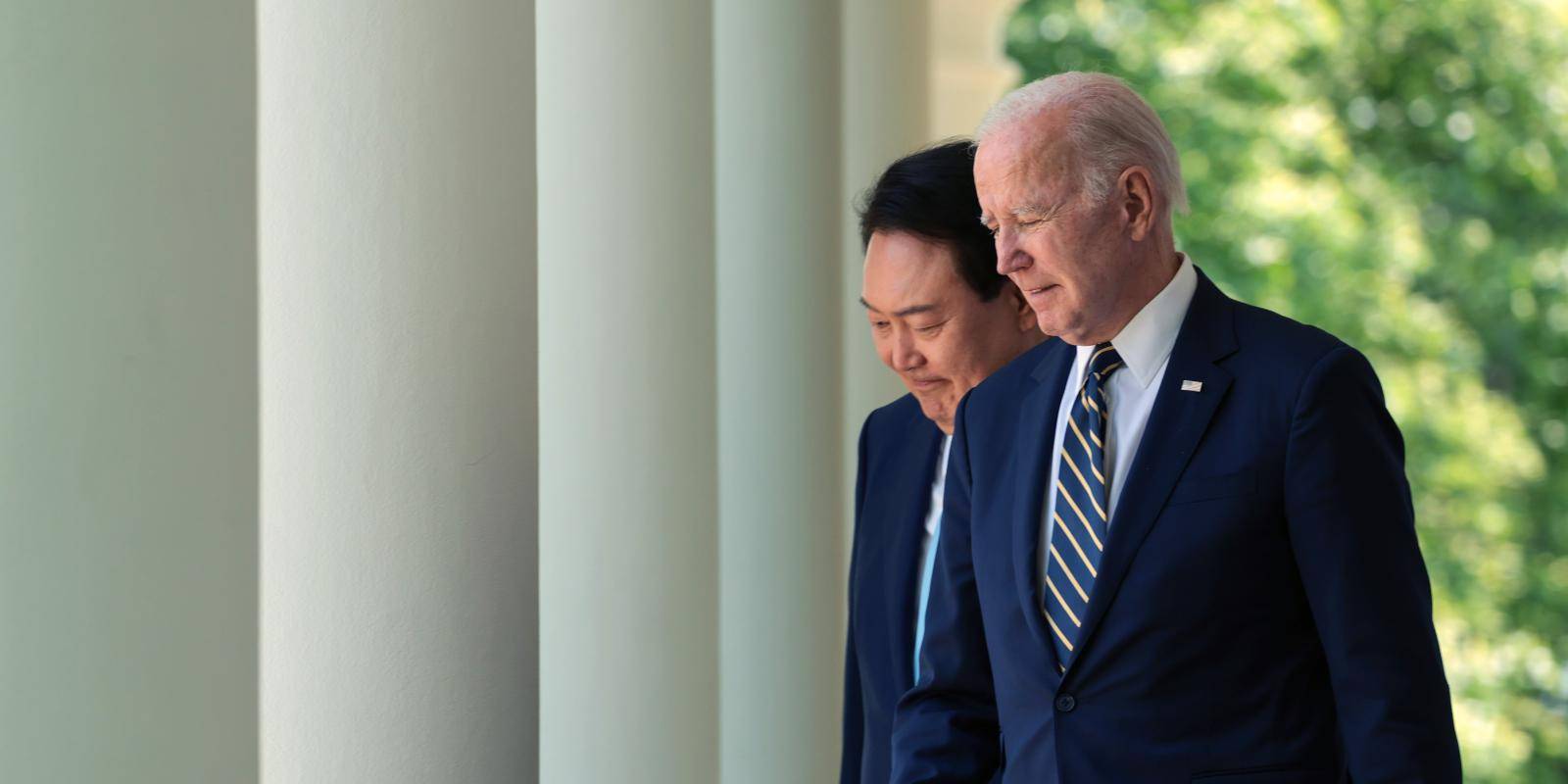Dr Marion Messmer

North Korea’s test of a solid-fuel intercontinental ballistic missile (ICBM) is just the latest incident at a time of heightened nuclear risk across the globe, coming alongside Iran’s near weapons-grade uranium enrichment and Russia’s plans to station nuclear weapons in Belarus.
The US has also announced plans to deploy nuclear-armed submarines in the Pacific after requests for security assurances from the Republic of Korea which is increasingly concerned about the threat from North Korea. This announcement comes just weeks after Russia announced the deployment of its own nuclear-armed submarines in the Pacific.
Such an alarming uptick in nuclear-related activities highlights the increasing salience of nuclear weapons in global politics and the problems in nuclear diplomacy, but the multilateral toolkit can still provide effective responses.
Putin’s announcement of the suspension of Russia’s participation in New START marked a hiatus in strategic arms control between the US and Russia, but international nuclear relations have gradually deteriorated over several years as tensions between nuclear-armed states escalated and various nuclear arms control agreements been breached or abandoned.
Such an alarming uptick in nuclear-related activities highlights the increasing salience of nuclear weapons in global politics and the problems in nuclear diplomacy
There still remains a widespread commitment within the Treaty for Non-Proliferation of Nuclear Weapons (NPT) to eventual multilateral nuclear disarmament, a strong norm of maintaining the ban on testing nuclear weapons, and the principle of nuclear non-proliferation. But the NPT is under threat as the international political environment becomes more contested.
The 2015 and 2022 review conferences ended without a consensus document, with Russia walking away from the document at the last minute in 2022. The number of topics on which states diverge strongly has increased over time, making progress on the treaty objectives more challenging.
Positive responses support the cooperative approach
A growing number of states appear unwilling to play by the existing rules. North Korea, Iran, and Russia are defecting from the values of international cooperation and the rule of international law, creating paralysis in the multilateral system – particularly in the UN Security Council (UNSC).
In response to such alarming developments, the US has taken steps to promote transparency and reduce the chances of misperception by continuing to share New Strategic Arms Reduction Treaty (New START) movement notifications despite the Russian decision to stop sharing all notifications stipulated by the Treaty except for ballistic missile launches.
This US decision is a positive step towards reducing the risk of misperception and misunderstanding but, as the US continues its ongoing commitment to New START, it should consider sharing data more publicly, or with more states – perhaps in a P5 framework – to make the case for greater transparency and ongoing treaty compliance.
Such a move would underscore the importance of a cooperative approach to address complex issues surrounding nuclear proliferation and potential use. Norms are strengthened by being upheld. If the international community wants these values to be maintained, the most effective way is to keep acting in accordance with them.
Countries should work together to embody shared values even if not all actors participate, and consider what leverage there is over uncooperative actors to encourage compliance.
Membership demonstrates a commitment to values despite challenges and obstacles faced by signatories in safeguarding the treaty regimes
Iran’s decision to enrich uranium to near weapons-grade levels could be an attempt to increase pressure on its negotiation partners, and Russia announcing its plans to station nuclear weapons in Belarus could provide leverage for arms control agreements because Russia has long advocated for the removal of US nuclear weapons stationed in Europe.
Countries must hold themselves and others accountable for treaties and frameworks even when they appear not to be working. Even though the US and Russia are no longer party to the Open Skies Treaty, other treaty signatories continuing to uphold it shows a commitment to values of cooperation and transparency. This could serve as an example for other norms and values.
Similar commitments can be seen by states which are party to the Comprehensive Test Ban Treaty, Biological Weapons Convention, Chemical Weapons Convention, and the Treaty on the Prohibition of Nuclear Weapons.
Showing commitment encourages others
Membership demonstrates a commitment to values despite challenges and obstacles faced by signatories in safeguarding the treaty regimes from attack, expanding membership, or universalizing the underlying norms.
In addition, Europe and the US must avoid being backed into a corner and, instead, make proposals and lead by example to reinforce the values they claim to uphold. Tit-for-tat strategies are ineffective in a complex adaptive system, such as the international nuclear order, because countries are continuously forced into reactive positions by the most disruptive actor. This can result in a perpetual cycle of mistrust and hostility.
Image — US president Joe Biden (R) and South Korean president Yoon Suk-yeol arrive for a joint press conference in the Rose Garden at the White House, April 26, 2023 in Washington, DC. Photo by Win McNamee/Getty Images.
No comments:
Post a Comment